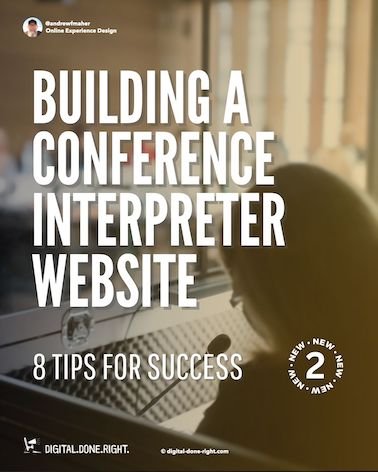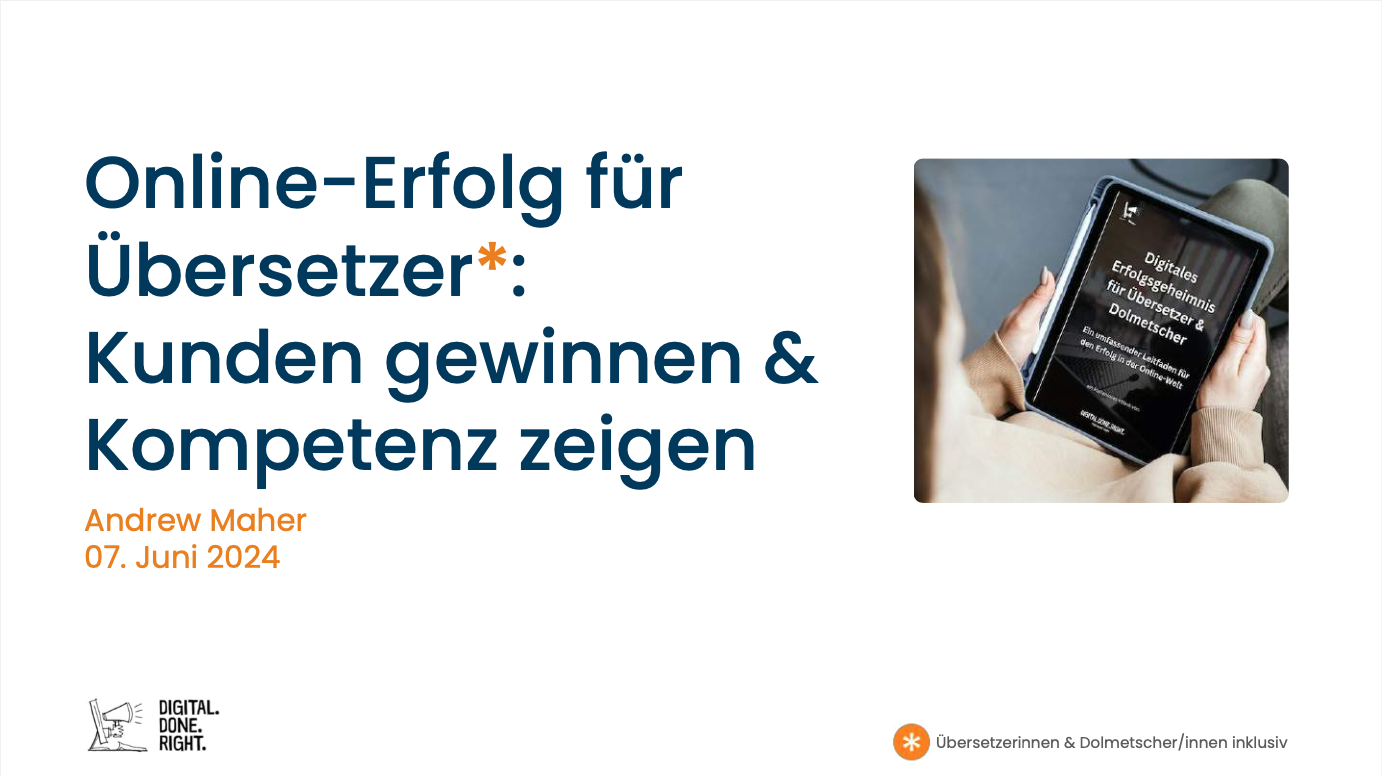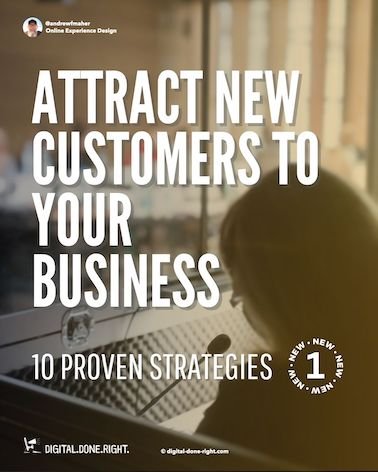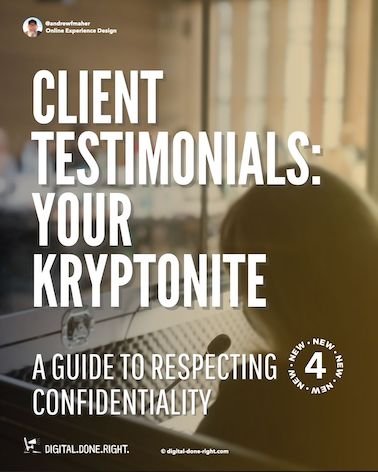8 Essential Tips for Your Interpreter Website
This is part two in a 5-part series on growing your interpreting services business using the internet.
Subscribe to my newsletter to never miss an Online Growth Hack! 👇🏻
So, it’s 2024, you absolutely need a website if you want your business to be seen and grow online. This goes double for B2B businesses, as a website can help you reach new clients and show off your skills. A well-designed website can tell people what you're all about, show them your products or services, and make them trust you more.
For conference interpreters, a website can be a game-changer for getting new clients and building your rep as a true pro. In this blog post, I’m going to go over some pages you should definitely have on your conference interpreter website, plus tips for making a website that really shows off what you can do. Whether you're just starting out or you're a seasoned pro, this guide will give you all the goods for building a killer online presence.
BUILDING YOUR WEBSITE
When creating a website for your conference interpretation business, it is essential to provide detailed information about your services. This includes the types of interpretation services you offer, such as consecutive and simultaneous interpretation, as well as the industries and events you specialize in, such as medical conferences or legal proceedings.
Additionally, it is important to include information about the qualifications and experience of your interpreters, as well as any certifications or training they have received. You may also want to include testimonials from previous clients to demonstrate the quality of your services and build trust with potential clients.
Finally, consider including a blog or other resources that provide valuable information about the interpretation industry and demonstrate your expertise in the field.
YOUR WEBSITE STRUCTURE
Here are some essential pages to consider:
Home Page
Provide a brief overview of your conference interpretation services.
Highlight your expertise, experience, and unique selling points.
Include a compelling call-to-action to encourage visitors to explore further.
About Us/About Me
Share information about your background, qualifications, and experience as a conference interpreter.
Highlight your language proficiency and any specialized industries or conferences you have expertise in.
Make it personal by adding a professional photo and a brief introduction to establish rapport.
Services
Detail the specific interpretation services you offer, such as simultaneous interpretation, consecutive interpretation, or whispered interpretation.
Explain how you adapt to different types of conferences, whether it's large-scale events, business meetings, or multilingual seminars.
Mention any additional services you provide, such as equipment rental or language consulting.
Conferences/Events/Industries
Create a dedicated page for the conferences and events you have participated in or are scheduled to attend.
Provide information about past events, including client names (if permitted), industry sectors, and specific roles you undertook.
Include testimonials or feedback from organizers or participants to highlight your professionalism and expertise.
"I WANT MORE SERVICE-ORIENTED COMPANIES TO BE SUCCESSFUL WITH THEIR ONLINE ACTIVITIES!"
Testimonials
Compile testimonials from satisfied clients who have used your conference interpretation services.
Showcase the positive feedback and success stories that demonstrate your skills, reliability, and ability to handle various scenarios.
If permitted, include the names or initials of clients to add credibility, but always respect client confidentiality preferences.
Resources
Offer a resources page with downloadable materials or links to relevant industry resources.
Provide helpful guides, glossaries, or industry-specific information that can assist clients in understanding the value of interpretation services.
Include blog articles or videos on interpretation tips, best practices, or case studies.
Contact Us/Me
Provide clear contact information, including your email address, phone number, and social media profiles.
Include a contact form that visitors can use to send inquiries or requests for quotes.
Consider including a map or directions to your physical location, if applicable.
Blog
Include a blog page where you can regularly publish articles related to interpreting, conference planning, language industry trends, or insights.
Demonstrate your expertise and provide valuable content that attracts visitors and establishes you as a thought leader in your field.
So, you might want to think about throwing in extra pages like FAQ (Frequently Asked Questions), Pricing (if it makes sense), Languages (showing off the languages you can speak), and Terms of Service/Privacy Policy to keep things transparent and address common concerns.
Just remember, the exact pages you need will depend on who you're targeting, your niche, and what you're trying to achieve. So, make sure your website is structured and written in a way that best shows off your skills, builds trust, and encourages potential clients to get in touch.
TL;DR
If you're a conference interpreter looking to build your online presence, a website is essential to reach new clients and showcase your skills.
In this guide, I'll cover the essential pages you should include on your website, as well as tips for making a killer online presence that stands out from the crowd.
👆🏻 Back to Top 👆🏻















